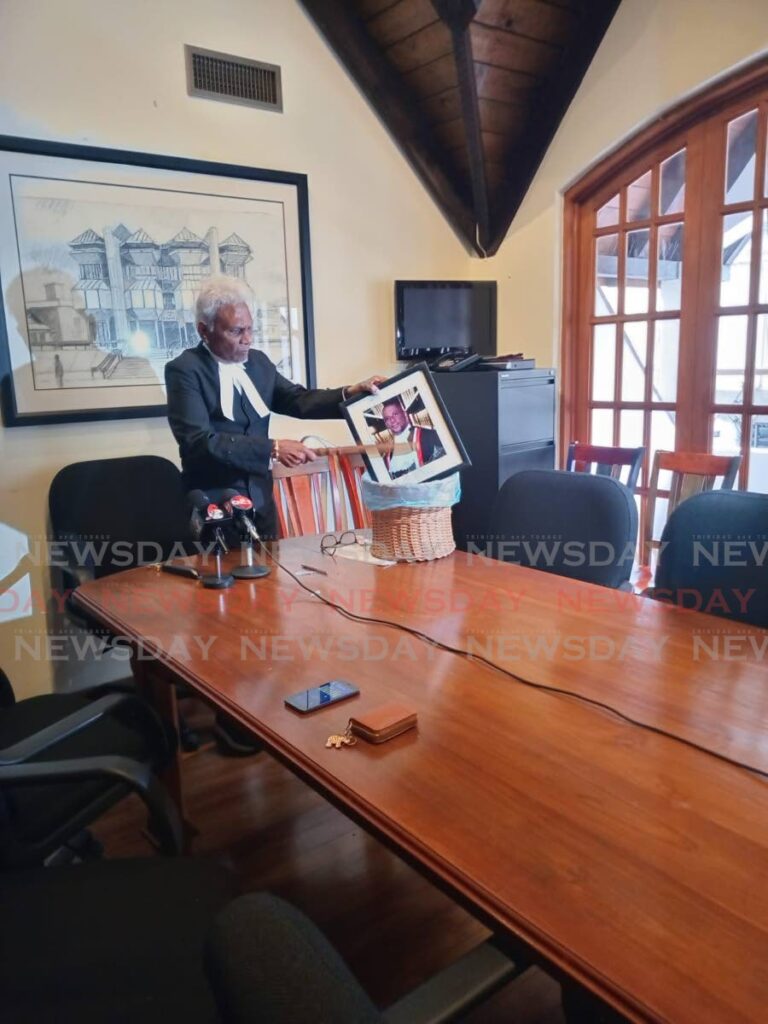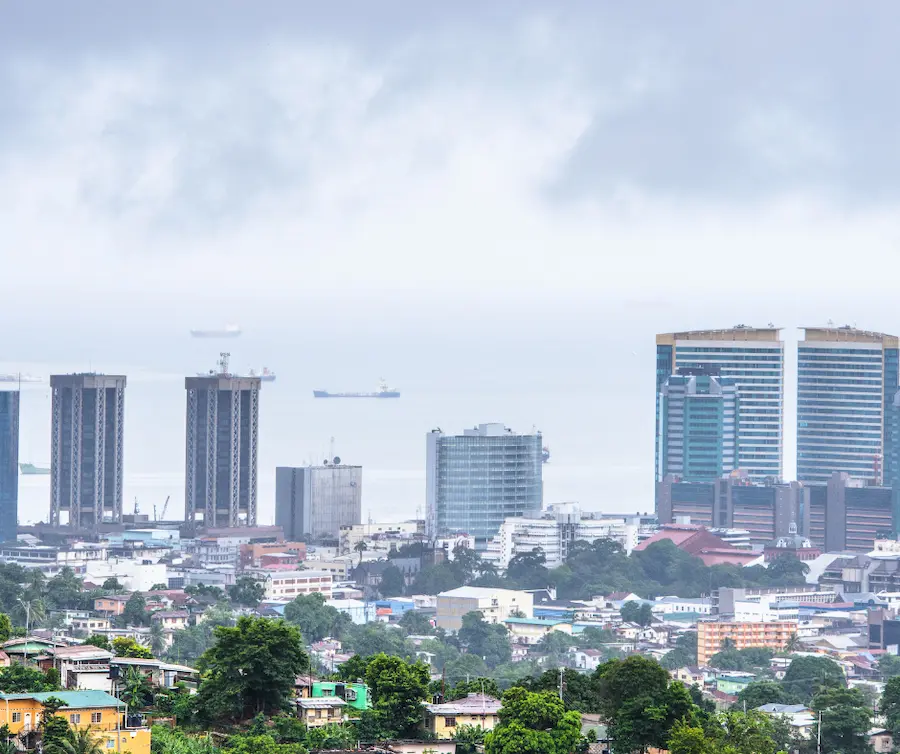

OUTSPOKEN senior attorney Israel Khan symbolically and dramatically destroyed a framed photograph of Chief Justice Ivor Archie at his Justitia Omnibus Law Chambers, St Vincent Street, Port of Spain, on April 3.
Khan, head of the Criminal Bar Association (CBA), said Archie, as chairman of the Judicial and Legal Service Commission, should be investigated for Marcia Ayers-Caesar’s forced resignation as a judge in April 2017.
His call follows the ruling of the UK Privy Council on March 24, which upheld an earlier ruling of the Court of Appeal that the JLSC wrongfully pressured Ayers-Caesar into resigning and acted beyond its authority in breach of the protections provided for by section 137 of the Constitution.
“Pressurising a judge to resign by holding out the threat of disciplinary proceedings, as the commission did in the present case, circumvents the constitutional safeguards laid down in section 137 and undermines their purpose,” the Privy Council ruled.
Now, Khan wants Prime Minister Stuart Young to invoke the section 137 provisions to investigate the Chief Justice.
>
After making his call for Archie’s impeachment, Khan took down Archie’s framed photograph from along the western wall of his conference room, where there were similar photographs of past chief justices. He then used a wooden baton to smash the glass on the frame then destroyed the photograph with his hands and scissors before disposing of the pieces in a rattan garbage bin. Broken glass remained scattered on the gleaming table of the conference room, which overlooks the Hall of Justice.
Khan insisted that Archie should be impeached because of the ruling of the eight appellate judges.
He said the two courts agreed that Ayers-Caesar’s removal was “orchestrated,” and she was “tricked” into signing an already prepared resignation letter, which was presented to the President to suggest her resignation was voluntary.
Khan said it was the CBA’s view that there were grounds to investigate possible misbehaviour in public office.
Khan acknowledged that the Prime Minister was the only person constitutionally allowed to trigger a section 137 investigation against the Chief Justice.
He reminded that former prime minister Dr Keith Rowley shot down a vote by the Law Association to impeach Archie on allegations of misconduct.
In December 2018, the association’s members at a special general meeting voted to report the Chief Justice to Rowley.
In August 2019, Rowley advised the association that he would not acquiesce to its recommendation to invoke section 137. Rowley said he was advised against pursuing impeachment because of a lack of evidence.
“Now, this has happened again,” Khan said, referring to the Ayers-Caesar matter.
>
“The main question that the Criminal Bar Association is posing to the present prime minister is whether he set up a tribunal to find out whether Chief Justice Archie should be removed from office.”
“The Criminal Bar Association believes he would not.”
Khan said Young should tell TT his intention before the April 28 general election.
“He must not go to the electorate and ask them to vote for him as prime minister. He should let them know whether he is going to set up a tribunal or not.”
Khan said the CBA wrote to Young on March 28, reminding him of the key aspects of the appellate courts’ rulings, telling him it was his “prerogative and responsibility” to decide if to trigger a section 137 investigation. He said the courts’ findings and the evidence presented in the case had reached the threshold for an official investigation.
On Thursday, Khan said that in any other country, the chief justice would have already resigned.
“We are saying set up an independent investigation to find out whether he should be fired or not.”
Asking about the Privy Council’s views of Ayers-Caesar’s conduct leading up to the crisis, he said Archie should have known better.
“They had to give her the right to be heard. Both of them could have been investigated based on what transpired and let the chips fall where they may,” he said, insisting Ayers-Caesar was misled by the JLSC.
>
“Two wrongs don't make a right.”
Khan also said the imbroglio raised the issue of constitutional reform since he does not believe the remit for removing a chief justice should lie with a prime minister.
According to Khan, under the separation of powers doctrine, a prime minister should have no jurisdiction or right over a chief justice.
Archie, as head of the JLSC, has yet to publicly comment on the Privy Council’s ruling nor has Ayers-Caesar. There is also no word on when she will reclaim her position as a High Court judge.
The Law Association has said the ruling reinforced the principle of security of tenure for judges and the proper conduct of judicial office-holders. It also noted that the JLSC and Chief Justice's failure to recognise this independence was a matter of "serious concern."
"Security of tenure ensures that judicial officers are free from external pressures and interference, whether exerted by the Executive, the JLSC, which appoints them, or the Chief Justice who leads them.
"Equally concerning is the fact that, because of such failure, the matters which gave rise to the litigation between Justice Marcia Ayers-Caesar and the JLSC remain unresolved."
The Assembly of Southern Lawyers (ASL) called for constitutional accountability and a response to the constitutional breach. The ASL recommended that an independent tribunal be formed to investigate the Chief Justice’s role in the matter.
The body also recommended independent enquiries by the President into the institutional functioning and procedural integrity of the JLSC in 2017 and a parliamentary review of the commission’s accountability framework.
>
On March 31, Young told reporters he had asked the Attorney General to get advice on the Privy Council’s ruling.
“That is not a decision that is made on the cuff. That is a decision that is made on the fly. That is a very serious decision.”


